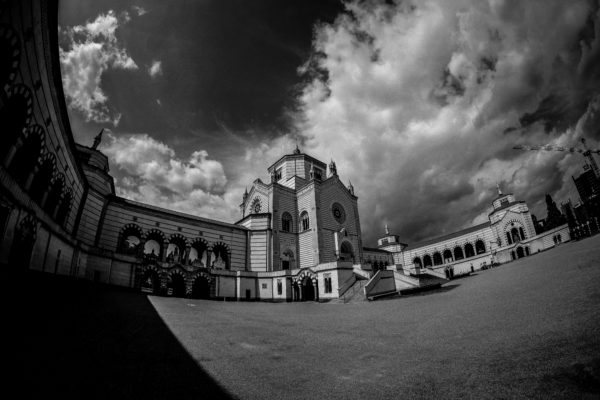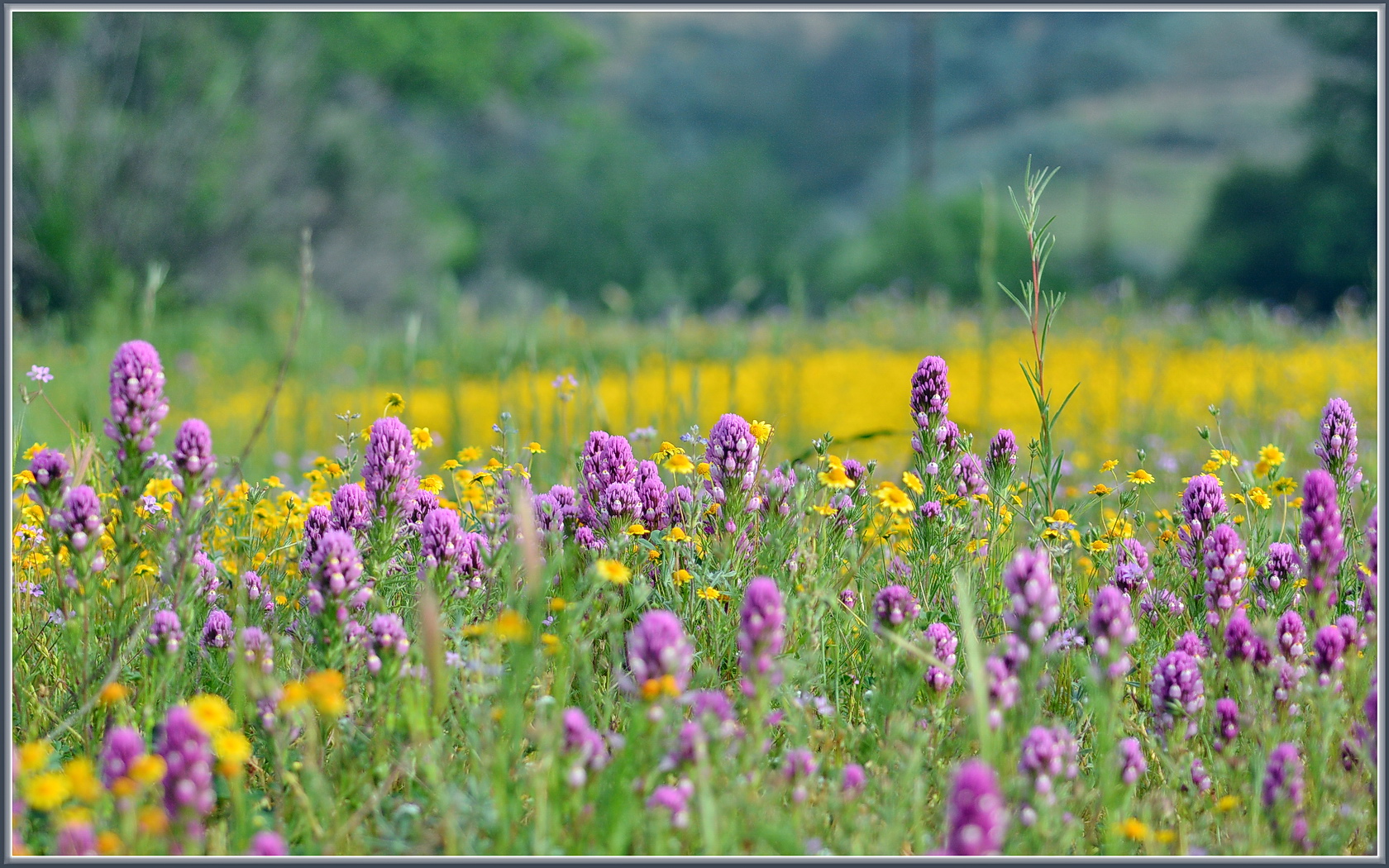Excerpt Translated by Ayten Tartici
“Telling men that they are equal is certainly a sentimental suggestion. But this suggestion is weak compared to the one practiced by a propaganda that tells them that they are superior to others and that others are inferior.” Karl Popper, The Open Society and Its Enemies
- Mediterranean People
“The expression ‘dirty negro’ pronounced by a twenty-five-year-old man while beating two black women along with his accomplices, causing them serious injuries, does not in itself denote discriminatory and racist intent on the part of those who said it because it could also be a less serious manifestation of general dislike, intolerance or rejection of those who belong to a different race.”
This sentence was pronounced by a judge in the name of the Italian people, in the austere courtrooms of the fifth section of the Supreme Court in the cold December of 2005.
Your honor, I am here to defend myself regarding the charges of insult and assault brought by the inspectors of public transport. In reality, it is they who assaulted me as a group only because I responded to their insults. I have decided to begin my defense, to try to understand how all this happened, beginning with this sentence. Where do I start? Even the Supreme Court, the pinnacle of juridical wisdom in this country, mistakes color for race. To affirm the existence of different human races based on skin color, on physical traits or on religion, is a colossal fraud, thought up to justify terrifying mass crimes. Today there are no more excuses to insist on this line of reasoning after the progress of genetics has shown us that there is only one race.
You, me, the aggressors of Udine, the aboriginals, the Zulu, the Arabs, the Tibetans, the soccer hooligans of Juventus or Lazio, Po Valley politicians, the residents of Rosarno and the killers of Castel Volturno… We are all of us one human race. There is no such thing as black, white or mixed races. Yet today it can still happen that a few bartenders kill a kid, suspected of stealing a cookie, with a crowbar only because he’s black. And a few judges confuse the racist insult of someone who strikes a black woman with a general antipathy towards a different race.
The question on the table today is: is there a problem with racism in our society or are these only isolated cases? And from where do these cases draw their encouragement? Does my case belong to one of these isolated incidents? There are Italian citizens with black skin. Will I always be considered second-class, not even a citizen, merely a guest? What happened to me, an assault in the street for not wanting to show my tram ticket while I walked, could such a thing ever happen to an Italian with white skin? No! Does it make any sense to inquire about this “dislike” toward the color of my skin? And above all doesn’t it make sense to understand the type of discrimination that a citizen like me, a black Italian, must suffer?
I firmly believe yes, and it is this I will try to show in my closing statement.
Your honor, my name is Paolo Diop Ravenna. I have a white father and a black mother. The colors of my father and mother are fused in my skin. I have physical traits that are both African and European. I am fiercely hybrid.
For blacks, I am white. For whites, I am always a black man. Being white and black, and not a chameleon, should I then belong to a race different from that of my parents?
I could call myself Ibrahim Ramazzotti, or be merely a made-up person, an alter ego invented for my story. I, my father Pietro, my mother Mamy, my uncle Gorghi, my wife Rama and my son Mademba, we could name ourselves a thousand other ways and be the protagonists of a thousand stories, some hard like a punch to the stomach, others with happy endings, stories like many that have actually happened in Europe and Africa.
What’s important is that in everyday life there exist many true Paolo Diop Ravennas, with a white father and a black mother. They are the new citizens of Italy! Labeled incorrectly as second-generation immigrants, especially when their skin is not white. They are the sons and daughters born of mixed marriages between Italians and foreigners, between foreigners and Italians. They are the children adopted at birth and raised in families with a skin color that is different than their own. They are simply people born and raised here by foreign parents. These kids, often neither black nor white, are both things together. They identify with the kids of their generation. They are attached to Italy and they love it openly and freely.
Your honor will forgive me if while I lay out my defense I call one by one to the stand these young and new Italian, European citizens. Yassin, Saba, Matteo, Adama, Francesco. And more: Yao, Karima, Patrick, Hermann Ebongué, Claude. People of flesh and bone that tell true stories, stories of those embraced by two worlds, who take root in that new world but are not indifferent to the old, young people who have broader horizons and who will be the future, in a world ever more mixed.
I am here in court because, as I was saying at the start, I was set upon by four public transport inspectors while walking by a tram stop. I remember that day clearly. It had started well. I was very happy because that morning I had just finished a meeting with roughly sixty kids from a Milanese high school. I often go into schools to give two or three hour lessons on certain aspects of African culture or to give a simple testimony of my being Italian-African. With the students, I tackle questions of race, migration, tolerance, equality, diversity and cultural affinity. At times I read poems or passages from books. I carry out the dual professions of librarian and cultural mediator. That morning, three classes of students and their teachers had come all the way to the French library in downtown Milan where I work part-time.
I had worn my white shirt and my best shoes. I had shaved and used cologne. I wanted to have the perfect look. The kids were between sixteen and seventeen. They had asked many pertinent questions and for readings on Africa. There were two girls, one black and one Arab, who it looked to me were very happy to hear a migrant discuss these themes and to see their classmates and teachers follow along so attentively.
Do you know what I think, your honor? I think that these two foreign girls probably felt delivered from the lies spread about immigrants. They knew what this migrant was talking about, and they were aware that they shared something with him in more respects than their classmates.
The boys got excited and discussed soccer line-ups after I declared that I was a Milan supporter and noted that my son, a little younger than they, was, because of his Italian grandmother, an Inter supporter. The argument about the Milanese teams of the Series A Championship had displaced the central theme of my speech, irritating the girls, save when out came the name of Mario Balotelli, a black soccer player and rookie, only a few years older. The eyes of the girls lit up and they talked about Mario like a movie star.
“Mario Balotelli is clever,” the girls repeated with big smiles.
“Because he won’t become an Interista like his son!” they exhorted, teasing the Milanisti.
“Mario is going places. I have his poster in my room,” exalted one Inter fan while the Milan supporters objected by turning down their thumbs.
“I have three of them in my room. The poster where Mario looks the coolest is above my bed,” confessed a smart, sweet girl. “He played a few times with my brother. He gifted me the poster.”
And so, those two hours, not just back-and-forth about soccer, passed by, and at the end the students and teachers were happy. Yet it was I who learned a worthy lesson on new Italians that morning. While I was speaking with the Arab girl, I asked her a question merely to confirm what I assumed was true.
“Where are you from?”
“Italy,” she responded with a polite but confused smile. “Why?”
“I thought you were foreign,” I admitted with embarrassment.
“Even you, who are mixed, missed it. You’re not the only one. They treat me like a foreigner here. There are people who constantly doubt I’m Italian, even when I pull out my ID. The nicest people complement me because they think I’m an Arab who can speak good Italian. But my family has always been Italian. We did not ever emigrate. My brothers and cousins have different features among them. We represent the Mediterranean. It was you had said that the Mediterranean is a basin in which East and West, Europe and Africa, have always intersected. The lands around this sea that seems closed have seen perhaps the most consistent mixing in the course of human history. Did you not just say that a few minutes ago?”
“Yes!”
“Maybe I am mixed without knowing it, because so much time has passed. But why is it relevant?” she continued.
I was embarrassed. I preached a big game but I fell into stereotypes in my encounters with those who are “different.” A demonstration of how contagious the habit of reverting to prevailing attitudes is.
“Can I ask you a question,” I said.
“Yes!”
“That black girl? Where do you think she’s from?”
“One second, I’ll call her, we are friends.”
“I won’t screw up this time. Let’s see… her parents came from the Horn of Africa?”
“Wrong. Her name is Francesca like me! Her family has been living in Italy for a long time. Her father says her ancestors came from Greece. Her surname is Greek. She doesn’t care. Her father is Greek and black, her mother white and Italian. No one from her family, not even her paternal grandparents, all black, ever stepped foot in Africa.”
“I know a little Greek, but my language is Italian,” added the darker Francesca. “My dad is blacker than me and speaks Greek, his mother tongue. I don’t feel better or worse than a foreigner.”
“Me neither, why should I feel better than an Arab,” added the lighter Francesca.
I turned that over in my mind. Why should the status of being foreign inspire contempt?
In any case, what does it mean to be foreign? Is it enough to be Arab in Italy or in France? To not be white in Europe? To not be black in an African country? Of what color should an American be?
We represent the Mediterranean… I thought about that phrase a long time. Over two thousand years of history and of melting pots, migration and assimilation, of violent conquests and centuries-old domination, how bastardized all ethnic lines must be. What makes “Italian” the same as being a native of Italy? The language? Anyone can learn it well after a few years. The religion? Are those true Italians who convert to Islam no longer Italian? Is it the eating habits? But even a girl born here with the features of the Maghreb can love spaghetti and pizza more than her peers. And so? How is belonging measured? With how much one loves a country?
* * *
Pardon me if I digress, your honor, let us return to the assault. An hour after meeting with these high school students, I was walking on the sidewalk of the Piazza Repubblica. I was going to pick up my son Mademba, born during my first marriage, from school. That evening he was staying at my house and not with his mother.
It was a beautiful day, without the sticky humidity of the Padovan plain. I was thinking about Rama, my current wife, who was pregnant and distressed. She wanted to return to give birth in Dakar, close to her mother. We live in the Casbah quarter. It’s a beautiful neighborhood between Tunisia boulevard and Porta Venezia, not far from Central Station.
I had known Rama Marie Rose Fall from childhood. We were neighbors in the Medina neighborhood of Dakar. She has Portuguese blood, and is mixed like me. The family of her mother had been exiled from Capo Verde in the Sixties because of the war of independence against Portugal. Her mother, Maria Lopez Delgado, had married a friend of my father, Yoro Fall, an old anti-colonialist. Toward the end of the Seventies, when Capo Verde became independent, his mother wanted to finally return to live in Praia, the capital.
Yoro Fall was ready to move together with his wife but Rama Marie Rose Fall and her brothers decided to remain in Dakar, where they were born. Their parents were compelled to give up their dream of repatriating.
We met on the occasion of a brief trip to Dakar. I had gone with my brother Mademba to find my parents. Both Rama and I were getting out of broken marriages. She had two kids. We shared emotional frustrations and exchanged email addresses. We remained in contact through email, text and telephone. A few months after, I returned to Dakar to see her. In the end we got married and she joined me in Milan.
But the transition to life in Italy, even after two years, did not turn out to be easy. The truth is that Rama did not want to adapt. She liked the clothes, the scarves, the beautiful perfumes, but she suffered from the cold, the fog, the frenetic rhythm, the food. She didn’t push herself to learn Italian, even if, paradoxically, Rama’s mother tongue, the Portuguese creole spoken in Cape Verde, has Latin roots that would have made it easier for her. Her constant worry was the memory of her two children still in Dakar with their father.
* * *
We were talking about the assault, your honor… The two inspectors got down from an old, nostalgic tram stop at the Piazza Repubblica stop and blocked the road. They were of medium height. They wore their blue uniforms that to me always seem sad. They were sweating, irritated, with lucid eyes.
“Show us your ticket,” one of the inspectors demanded in a brusque tone, using “tu”, which had offended me, as if one could not use “lei” with a forty-year old black man.
“Why do I need a ticket if I am a pedestrian?” I responded dryly, looking to contain my indignation, or rather the rage that springs from humiliation, from the unjustified abuse of power, or justified only by the color of my skin. I don’t know if you can understand me, your honor, I fear not because surely nothing like this has ever happened to you.
“Enough. Show us the ticket,” they insisted.
“I am not getting on or off the tram or the bus. It is you who got off the tram at the end of the line while I was walking.”
“We’re in our house and we do what we want,” one of the two inspectors said. And the other: “Out with the ticket.”
“I don’t care if this entire sidewalk is your house!”
“Look how cocky you are! You come into our house, asshole, and pretend to make the laws. Get out of here, we don’t want to see you!”
“I am a free citizen and I go where I please.”
“Go to your sister then,” one shouted.
“Go to your mother,” I replied. It was at that point that one of the inspectors threw a bunch at my chest. Out of instinct, I returned the blow.
Then a brawl broke out. The inspectors rained down punches and kicks. They kicked me to the asphalt. I hit my head. Two other inspectors, perhaps also the tram conductor, got involved and kicked me like a ball while I lay on the ground. I tried to protect my face while they shouted:
“We’re detaining this negro until the police get here. We will not let this illegal son-of-a-bitch get away. You brought this on yourself. We are public officials. We’ll make you pay dearly, Moroccan.”
There were others present. They saw and heard everything but they remained indifferent.
When I got up, a North-African boy told me in a low voice: I saw and heard everything. I will be your witness. When the police arrived, however, the boy vanished.
The police separated everyone and started a report. They asked for my documents. They were sympathetic with me.
A white man on a scooter, a helmet still on his head, came and told police that he saw me hit one of the inspectors. He left his information, ready to testify in their favor. I remember that he said he was an accounting professor. A police officer said I needed medical attention. I was bleeding from the face. An ambulance carried me to Fatebenefratelli around the corner.
* * *
I called my friend Antonio, who left the library and rushed to Piazza Repubblica. Antonio is white, a transplant from the South who has lived in Milan since he was a kid. I was not able to call the mother of my son, my ex-wife, so she could pick him up from school. My cell battery had died in the meantime. I don’t remember if Antonio came in the ambulance, but he was with me at the hospital. The pain and humiliation had started to overwhelm my mind.
Your honor, my wife Rama learned of the assault on the evening news. She fainted and lay on the ground until late. When I returned from the emergency room, accompanied by my friend Antonio, Rama was still lying on the ground and losing blood. Antonio called the ambulance. After arriving at the Mangiagalli hospital, Rama had a miscarriage.
In the following days, groups of foreigners of diverse origins and extremely upset Italians wanted to organize a protest in front of the public transportation headquarters. It took every ounce of Antonio’s persuasive ability to dissuade them. The evening after, in the library at Porto Venezia, Antonio gathered various Italian and foreign friends, who were influential in their communities, and convinced them to make the others give up their planned action. There was the risk that the protest would descend into violence and would aid the propaganda effort against foreigners. Antonio advised me to maintain a low profile with journalists, to not inflame the spirits of the Italian and foreign friends who called me and who showed their solidarity by writing me thousands of messages. I had spoken of the assault on the radio, television, newspapers, and even with the foreign press. It was they who sought me out.
After some time, Rama, having absorbed the trauma of the miscarriage, returned to her mother in Dakar, determined never to set foot again in Milan. Rama begged me to move to Dakar with her. I understood her, she who had children far away and whose father would not get back together with her. I was in a similar situation. I could not leave Mademba, my son, or rip him away from his mother to follow Rama to Dakar. I loved Rama but I also loved Milan, which was my home and that of many loved ones.
The story of my family resembles those peoples of the Mediterranean because it is marked by those that come and go from one country to another, get married and mix with people of a different religion, color or ethnicity. My father is Italian, the son of French immigrants. He married a Senegalese woman and for love chose Senegal as his adopted home. The world is full of similar cases, of persons of diverse origins who in the name of love vault over the strictures of culture and religion to connect with their destinies. They do not renounce their origins, but know how to adapt to new conditions, to broaden the horizons of subsequent generations and those who are near to them. They are “citizens of the world,” a world always more mixed.
Dura lex
But this is another story, your honor.
Returning to the assault, my accusation against the public transport inspectors for insult and injuries certified by a doctor has from the beginning been dismissed by the court. I licked those wounds and humiliations and resigned myself. However, one of the inspectors filed charges of his own and the matter was followed-up upon. The colleagues who had participated in the assault became his witnesses. The attack has now wound up in court, by the magic of equality for all under the law, in the shoes of the defendant. I am accused of resisting a public official, aggravated assault and insult! I risk being convicted.
I still remember the North-African boy who wanted to testify on my behalf, who at the arrival of the police walked away. Staring at me, his eyes seemed to say, “I am sorry but I cannot remain… Now the police are in the way, as you see… I don’t know how credible the testimony of an Arab on behalf of a black man is compared to that of so many whites. I must disappear, brother, it is better for me, and perhaps it is better for you, too.”
Others had assisted in the assault through their silence that afternoon in Piazza Repubblica. In an alternate world, perhaps it would be enough if more people had spoken out against the attackers: “Stop it. You’re exaggerating. We don’t behave this way. We have seen and heard all. We have referred it to the police and to justice.”
By now, people seemed to have become completely indifferent to cases in which someone, man or woman, is attacked even in the middle of a crowd. Unfortunately, we have read and re-read reports of people, whether black or white, who got in trouble for intervening to defend a stranger. There are those who are physically hurt and their aggressor for various reasons gets off unpunished. There are those who are charged and are forced to suffer an unjust condemnation and to pay damages, while the person they wanted to help can’t be found. There are people who wind up in the cemetery. Fear is an emotion common to all people, your honor. At any latitude, it is easier to turn your face away. Yet, there are cases in which people have not accepted the abuse of power, have not turned their face away, did not remain passive when they saw a helpless person attacked or in danger of their life.
I want to tell you briefly the true story of Sarr Gaye Samba Diouf, a Senegalese of thirty years who lived in Rimini. He was killed by Vincenzo Figliola, 21 years old, one Tuesday night in June 2001. Sarr Gaye Samba Diouf was sitting in the bakery of Vincenzo Casadio, together with acquaintances and vacationers, when Vincenzo Figliola, Pasquale La Rosa, Antonio Varriale and another young man, only newly twenty, entered and, without apparent motives, insulted and threatened both the clients and manager. No one dared to protest, except Samba, the only black person present. He asked the four young men to stop it. Vincenzo Figliola went to the back, grabbed a baker’s knife, and then stabbed him twelve times. The men present and the baker that Samba wanted to protect did not lift a finger. Instead, Samba bled out far from his family. In the following days, while anonymous residents of Rimini and friends of the victim cried and organized to honor his memory, some politicians declared in the newspaper their desire to determine if the non-European, Sarr Gaye Samba Diouf, was in compliance with his residency permit. Samba was in compliance, but what was the point of all this? Vincenzo Figliola would probably have stabbed someone just the same if, in place of Samba, there had been a white man, upstanding like him. But in that case everyone would have spoken of the white man as a hero. And this is the point, the courage and the sense of justice cannot depend on the color of one’s skin.
I will conclude with another story, your honor: something that really happened in Tuscany. In the summer of 2004, Cheikh Sarr sacrificed himself while saving a boy who was drowning off the beach of Castagneto Carducci.
Cheikh Sarr was young, Senegalese, with black skin. He had been living for many years in Italy. He had a wife in Senegal and a daughter born there while he was away and that he had not yet seen. That hot summer afternoon, when he realized that a swimmer was drowning, Cheikh dove in together with another brave Italian. They had managed together to savee the unlucky swimmer. Cheikh, however, had expended all his energy and was unable to make it back to shore. He hit a difficult spot and started drowning. The swimmers of Catagneto Carducci saw him a moment before when he had not hesitated to dive in. Now that it was he who was in trouble, none of the swimmers moved. Cheikh drowned. The swimmer who survived thanks to Cheikh’s efforts did not stop even for a second to say thanks. He disappeared into thin air. For weeks, politicians and local newspapers, grateful to Cheikh, had pleaded with the swimmer or a member of his family to come forward, to say thanks to the deceased Cheikh Sarr, to apologize to his wife and daughter. The only consolation of this episode of dazzling egoism was that the President of the Republic bestowed on Cheikh Sarr a gold medal for civilian valor. This story taught me two things: the first is that ingratitude is unfortunately not a crime, but above all that he who undertakes these acts of courage has at his back different forms of courage. I remember reading in the newspapers what the twenty-something wife of Cheikh said when asked about the saved swimmer: “My husband saved him and performed his duty. He is not a hero for this. The courage of my husband was to emigrate, which is the courage of the majority of our people.”
Pap Khouma is an Italian writer of Senegalese origin. Khouma immigrated to Italy in 1984, and has ever since called Milan his home. His first autobiographical novel, Io, venditore di elefanti was published to great acclaim in 1990 and translated into English as I was an Elephant Salesman in 2010. In it, Khouma explores the despairing lives of illegal immigrants, who are often relegated to selling carved elephants and African ornaments on streets throughout Europe.
Ayten Tartici is currently a PhD candidate in Comparative Literature at Yale University. Her essays have appeared in The Atlantic, Michigan Quarterly Review and MAKE. Her translations from Turkish are forthcoming in Princeton’s Inventory.




